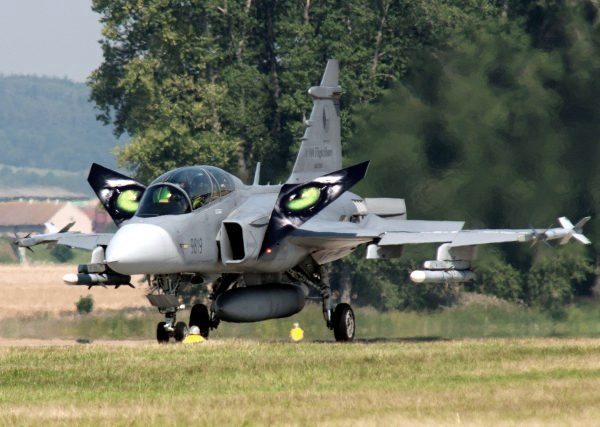The Swedish government defended plans Thursday to equip fighter jets with cruise missiles capable of striking targets in Russia, days after announcing a military spending hike linked to the Ukraine conflict.
“In the future the ability to combat longer range targets can be important,” Defence Minister Karin Enstroem told public broadcaster Sveriges Radio, adding that the missiles would have “a high precision which acts as a deterrent”.
“So it would raise our collective defence capabilities and thus raise the threshold effects of our defence.”
On Tuesday the center-right government announced plans for a 5.5 billion kronor (604 million euros, $835 million) rise in annual defence spending by 2024 — on top of the current annual budget of close to 50 billion kronor — including an additional 10 Swedish-made Saab Gripen fighter jets, bringing an airforce fleet upgrade to 70 planes.
In a statement the government referred to the “deeply unsettling development in and around Ukraine” and Russia’s occupation of “parts of a sovereign state”.
The Swedish defence forces have argued for longer range missiles to deter Russia from destroying Swedish weapons from a distance. The new missiles — to be fitted on Gripen jets — would have double the current range at 1,000 kilometers (620 miles).
“It shows a potential opponent that we can fight at long distances and therefore we believe it is a deterrent,” Colonel Johan Hansson told Sveriges Radio.
“If we are detected early we must be able to have a firing range that is much longer than what we’ve previously been used to.”
The new approach by the government marks a departure from the traditional defensive stance by the non-aligned and previously neutral country.
As late as late 2013 Foreign Minister Carl Bildt wrote that cruise missiles had never been considered part of the country’s defence.
Sweden’s second opposition party, the Greens, criticized the announcement, warning that it marked a departure from the country’s defensive stance that could “influence other parties” and encourage rearmament in the region.
However the shift towards a more offensive military force had the support of Sweden’s largest opposition party the Social Democrats, who sought to play down speculation of a confrontation with Russia.
“We have no such ambitions. In an acute situation there can be a need for different options, but we are not a country that is out to attack anyone else,” Peter Hultqvist, the Social Democrat chairman of the parliament’s defence committee, told news agency TT.
Russia caught the Swedish military off-guard in a simulated air strike exercise with fighter planes over the Baltic Sea in March 2013, sparking a heated debate on national defence.
At the time the head of the armed forces controversially claimed that Sweden could not defend itself in a military attack that lasted more than a week.
A major review of the country’s defences is due for completion in mid-May.









